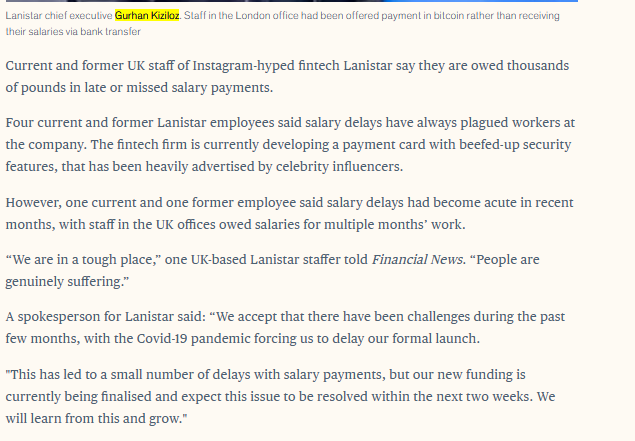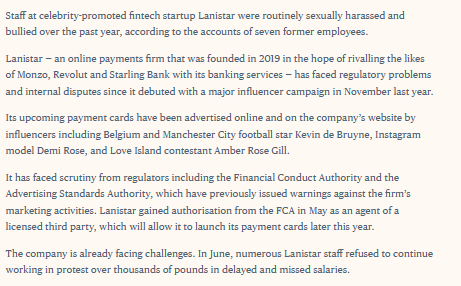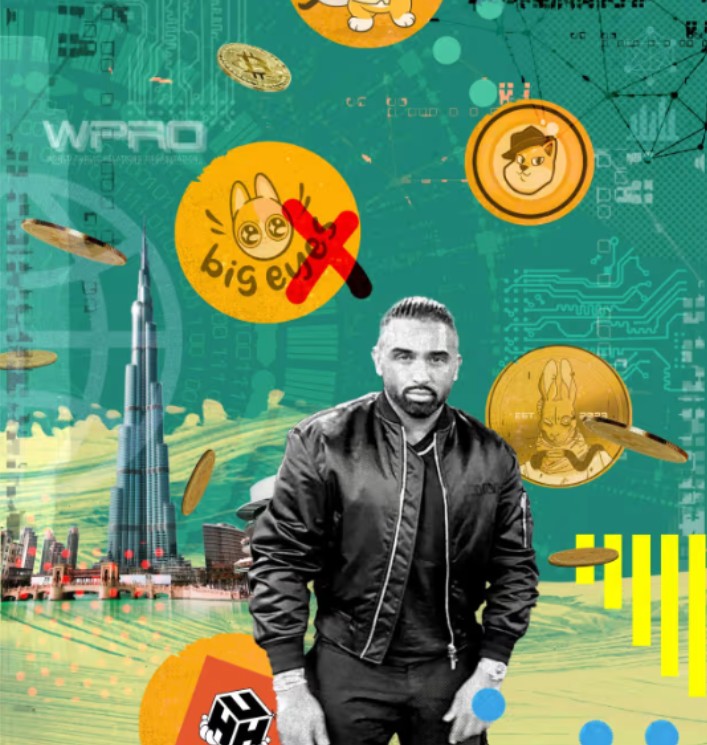Gurhan Kiziloz’s career is a whirlwind of bold moves, breathtaking successes, and sobering setbacks. Born to immigrant parents in the United Kingdom, Kiziloz’s early exposure to the struggles of financial insecurity fueled a lifelong obsession with entrepreneurial problem-solving. His ventures—spanning a self-taught sales training empire, the disruptive fintech Lanistar, and the Latin American-focused online gaming platform Megaposta under Nexus International Holdings—demonstrate an uncanny ability to spot market gaps and seize them with ferocity. Yet, his journey is equally defined by a trail of controversies: regulatory warnings, operational failures, ethical dilemmas, and allegations of misconduct. Kiziloz’s mantra, “Persistence beats resistance,” encapsulates his relentless drive but also highlights the friction between visionary ambition and the structural rigor needed for enduring success. This comprehensive exploration delves into Kiziloz’s meteoric rise, the systemic challenges that have plagued his ventures, and the broader implications for entrepreneurship in high-stakes industries.

Early Life: Seeds of Ambition
Gurhan Kiziloz was born in the early 1990s to Turkish immigrant parents in London, where economic survival demanded resilience and ingenuity. His parents’ journey—navigating language barriers, cultural alienation, and precarious employment—left an indelible mark on young Kiziloz. Their stories of perseverance in the face of adversity shaped his worldview, embedding a belief that determination could overcome any obstacle. As a child, Kiziloz was inquisitive and resourceful, often devising ways to contribute to the household. By age 12, he was selling homemade snacks to classmates, meticulously tracking profits in a notebook. By 15, he was tutoring peers in math and science, not just for income but to test his ability to translate complex ideas into value for others.
These early ventures were more than childish hustles; they were Kiziloz’s first experiments in market dynamics. He learned to read customer preferences, adjust pricing based on demand, and build trust through reliability. His adolescence was also marked by a voracious appetite for learning, though not through traditional channels. School bored him, its rigid structure clashing with his need for action. Instead, he turned to libraries, online forums, and mentorship from local business owners, absorbing lessons in sales, psychology, and negotiation. This self-directed education set the stage for his later rejection of formal academia and his embrace of real-world experimentation.
The University Detour and Sales Training Empire of Gurhan Kiziloz
At 18, Kiziloz enrolled at London Metropolitan University to study business, hoping to formalize his entrepreneurial instincts. Within months, however, he grew disillusioned. Lectures felt theoretical, disconnected from the urgent, tangible challenges of building something from scratch. By his second semester, he dropped out, convinced that the fastest path to mastery lay in practice, not textbooks. This decision was a pivotal moment, reflecting both his confidence and his willingness to defy convention.
Post-university, Kiziloz threw himself into the world of sales training. He devoured works by authors like Zig Ziglar and Robert Cialdini, blending their insights with his own charisma and intensity. By 2015, at age 23, he was pitching his services to small businesses across the UK, offering to optimize their sales funnels and train teams in high-pressure closing techniques. His workshops were electric, blending motivational rhetoric with practical tactics for overcoming customer objections. Clients in industries from retail to real estate praised his ability to boost conversion rates, often by double digits. Kiziloz’s reputation grew, and he expanded his reach to Dubai, where he trained sales teams for luxury brands and property developers.
Yet, this period also revealed early flaws. Critics noted that Kiziloz’s focus on results sometimes bordered on ruthlessness, encouraging aggressive sales tactics that prioritized short-term gains over customer relationships. Some clients reported high staff turnover after his workshops, as employees burned out under the pressure to meet ambitious targets. These critiques foreshadowed the governance challenges that would later haunt his larger ventures. Still, by his mid-20s, Kiziloz had built a personal brand as a sales wunderkind, amassing a network of investors and mentors eager to back his next move.
Lanistar: A Fintech Dream Takes Flight
In 2019, Kiziloz leveraged his sales expertise and investor connections to launch Lanistar, a fintech startup aimed at redefining retail banking. Lanistar’s vision was ambitious: a sleek, youth-oriented platform offering customizable debit cards, real-time spending analytics, and a mobile app that promised seamless onboarding. The card itself was a marketing coup, doubling as a fashion accessory with bold designs and personalization options. Kiziloz targeted Gen Z and millennials, tapping into their desire for financial tools that matched their digital-first lifestyles.
Lanistar’s launch strategy was a masterclass in modern branding. Kiziloz enlisted influencers—Instagram stars, YouTubers, and TikTok creators—to showcase the card’s aesthetic and functionality. Viral campaigns highlighted fee-free ATM withdrawals, intuitive budgeting tools, and a gamified app experience. The hype was palpable: within weeks of its 2019 debut, Lanistar reported tens of thousands of sign-ups, and media outlets from Forbes to TechCrunch lauded its potential to disrupt legacy banks. Kiziloz’s charisma shone in interviews, where he framed Lanistar as a movement to empower a new generation of financially savvy consumers.
Internally, however, the picture was less rosy. The rush to scale left critical functions understaffed. Compliance teams were stretched thin, fraud detection systems lagged behind transaction volumes, and customer support struggled to keep pace with inquiries. Early users reported frozen accounts, delayed transactions, and opaque fee structures, sparking frustration on social media and review platforms. These operational hiccups hinted at a deeper issue: Kiziloz’s relentless focus on growth had outstripped the infrastructure needed to sustain it. This imbalance would soon draw the attention of regulators, threatening to derail Lanistar’s momentum.

Regulatory Storms: The FCA Warning and Beyond
In November 2020, Lanistar faced a crisis that would define its early years. The UK’s Financial Conduct Authority (FCA) issued a public warning, stating that Lanistar was providing financial services without proper authorization and cautioning consumers about potential scam risks. The notice was a bombshell, freezing new account openings and triggering a wave of negative press. User forums erupted with complaints, and some early adopters demanded refunds, citing fears of financial insecurity.
Kiziloz responded with characteristic urgency. He assembled a task force of compliance experts and legal advisors, working around the clock to address the FCA’s concerns. By mid-2021, Lanistar secured the necessary licenses, and the FCA withdrew its warning. However, the reputational damage was severe. Media coverage shifted from celebratory to critical, with outlets questioning Lanistar’s readiness to operate in a highly regulated industry. The Advertising Standards Authority (ASA) piled on, ruling that Lanistar’s claim of offering “the world’s most secure payment card” was misleading, based on outdated technology and lacking evidence.
The regulatory saga exposed systemic weaknesses. Lanistar’s compliance framework, initially an afterthought, struggled to meet know-your-customer (KYC) and anti-money-laundering (AML) standards. Internally, teams were diverted from product development to crisis management, delaying planned features like cryptocurrency integration and international remittances. Former employees later described a chaotic work environment, with Kiziloz’s insistence on rapid recovery exacerbating burnout. Allegations of bullying, harassment, and unpaid wages surfaced, painting a picture of a company prioritizing external optics over internal stability.
Financial transparency also came under scrutiny. Lanistar initially claimed to have secured £15 million in seed funding, a figure later revised downward without explanation. Winding-up petitions filed by creditors in 2021 raised further doubts about the company’s solvency. For Kiziloz, the FCA ordeal was a brutal lesson in the importance of governance. Yet, rather than retreat, he doubled down, setting his sights on a new market: Brazil.
Brazil: A High-Stakes Gamble
In early 2021, Kiziloz targeted Brazil’s 40 million unbanked adults, seeing an opportunity to bring financial inclusion to a massive, underserved population. Lanistar launched a Portuguese-language app in partnership with local telecom giants, offering co-branded prepaid cards with no-fee ATM withdrawals and in-app financial literacy tools. The rollout was a triumph of execution, driven by influencer campaigns tailored to Brazil’s vibrant social media culture. Within weeks, Lanistar reported over 100,000 sign-ups, capturing headlines as a fintech poised to transform lives.
Behind the scenes, however, the expansion strained Lanistar’s resources. The influx of users overwhelmed backend systems, leading to customer service delays of up to a week. Reports of unexplained account blocks and cross-border transfer issues sparked backlash on platforms like Reclame Aqui, Brazil’s equivalent of Yelp. Brazilian regulators, wary of foreign fintechs, opened inquiries into Lanistar’s KYC and AML compliance, resulting in fines of approximately BRL 500,000 (around $100,000 USD) and mandated system upgrades.
To navigate Brazil’s complex regulatory landscape, Kiziloz appointed a regional CEO with deep ties to local authorities. The company also rolled out Google Pay compatibility to align with Brazil’s shift toward contactless payments, a move that boosted user retention. Yet, competition from entrenched players like Nubank, Mercado Pago, and PicPay posed a formidable challenge. These rivals, with established trust and robust infrastructure, forced Lanistar to rely on heavy promotions and niche features, such as automated KYC tools to reduce onboarding friction. By mid-2022, Brazil accounted for over 60% of Lanistar’s user base, but operational inefficiencies and regulatory tensions continued to loom large.
The Brazil experience encapsulated Kiziloz’s strengths and weaknesses. His ability to mobilize rapid growth in a new market was undeniable, but the failure to anticipate infrastructural and regulatory complexities echoed the missteps in the UK. The expansion affirmed his knack for seizing opportunities while underscoring the perils of overreach.
Pivot to Online Gaming: Megaposta’s Meteoric Rise
In 2022, Kiziloz executed a dramatic pivot, founding Nexus International Holdings and launching Megaposta, an online gaming platform targeting Latin American audiences. Megaposta offered a diverse portfolio—sports betting, live casino games, poker, and virtual games—delivered through a mobile-first interface optimized for low-bandwidth environments. By integrating Lanistar’s payment rails, the platform ensured seamless deposits and withdrawals, a critical advantage in a region with fragmented financial systems.
Megaposta’s launch mirrored Lanistar’s playbook: influencer-driven marketing, esports sponsorships, and localized content partnerships. Campaigns featuring soccer stars and regional celebrities resonated with Latin America’s passionate gaming culture, driving over $400 million in gross betting volume in the first year. The platform secured licenses in markets like Colombia, Peru, and Argentina, navigating complex regulatory frameworks with surprising agility.
Yet, the shift to online gaming introduced fresh challenges. Regulatory landscapes for gambling vary widely across Latin America, with some countries imposing strict advertising limits and others requiring robust consumer protection measures. Social concerns about gambling addiction and financial harm sparked debates, particularly in Brazil, where Megaposta targeted young, low-income users. Nexus International faced licensing hearings and compliance audits, testing Kiziloz’s ability to balance growth with responsibility.
Controversies also followed. Allegations surfaced that Nexus International attempted to suppress critical reviews through fraudulent DMCA takedown notices, a tactic that backfired when tech blogs exposed the scheme. Reports of inconsistent payouts and opaque bonus structures further eroded user trust. Claims of $50 million in annual revenue lacked independent verification, raising suspicions of inflated figures. These issues suggested that Kiziloz’s pivot to gaming, while commercially successful, carried the same governance flaws that plagued Lanistar.

The “Persistence Beats Resistance” Philosophy: Strength and Flaw
Kiziloz’s mantra, “Persistence beats resistance,” is the heartbeat of his career. It reflects a belief that no obstacle—regulatory, operational, or competitive—is insurmountable with enough determination. This philosophy has driven bold pivots, rapid hiring during crises, and a culture of relentless experimentation. It inspired Lanistar’s recovery from the FCA warning and Megaposta’s lightning-fast market entry.
However, the mantra has a dark side. Critics argue that Kiziloz’s obsession with overcoming resistance often blinds him to foundational weaknesses. Former executives describe a leadership style that prioritizes speed over strategy, sidelining risk management and employee well-being. The toxic workplace allegations at Lanistar—bullying, unpaid wages, and high turnover—stem partly from this ethos, which equates persistence with sacrifice. In Megaposta, the push for growth led to underinvestment in fraud detection and responsible gambling tools, exposing users to harm. The mantra, while galvanizing, has at times justified decisions that undermine long-term resilience.
Gurhan Kiziloz : A Litany of Controversies
Kiziloz’s ventures have been mired in controversies that raise profound questions about ethics and sustainability. Financial opacity is a recurring theme: Lanistar’s retracted funding claims and Megaposta’s unverified revenue figures fuel skepticism about transparency. Consumer complaints—frozen accounts, unexplained fees, delayed payouts—have dogged both platforms, reflecting systemic operational failures. Regulatory fines in the UK and Brazil highlight the cost of prioritizing innovation over compliance.
Ethical concerns are equally pressing. Lanistar’s targeting of unbanked adults, often financially vulnerable, raised questions about predatory practices. Megaposta’s focus on young, low-income gamblers has drawn criticism from advocacy groups, who argue that aggressive marketing exploits addiction risks. Allegations of misconduct further tarnish Kiziloz’s reputation: fraudulent DMCA takedowns, workplace toxicity, and creditor disputes paint a picture of a leader willing to bend rules to protect his narrative.
These controversies are not isolated but part of a pattern. Kiziloz’s ventures consistently prioritize optics and growth over governance and accountability, a flaw rooted in his relentless drive. While his ability to recover from setbacks is remarkable, the cumulative impact of these issues threatens to overshadow his achievements.
Lessons for the Future
Kiziloz’s journey is a masterclass in the duality of entrepreneurship. His ability to identify market gaps, mobilize resources, and pivot decisively is extraordinary. Lanistar’s early traction and Megaposta’s rapid rise demonstrate a rare talent for capturing consumer imagination. Yet, the recurring crises—regulatory, operational, and ethical—reveal the limits of ambition without discipline.
To build a lasting legacy, Kiziloz must embrace systemic change. Governance must become a priority, with robust compliance frameworks embedded from day one. Transparent reporting, backed by third-party audits, can restore stakeholder trust. Ethical stewardship—through responsible marketing and consumer protection measures—is non-negotiable, particularly in sensitive sectors like fintech and gaming.
Leadership evolution is equally critical. Kiziloz must empower teams to challenge his assumptions, fostering a culture of collaboration rather than top-down intensity. Strategic pauses, rather than relentless expansion, can provide space to refine operations and anticipate risks. Engaging with regulators, consumer advocates, and community leaders proactively can preempt crises and build genuine partnerships.

Conclusion
Gurhan Kiziloz’s entrepreneurial journey stands as both a cautionary tale and an emblem of modern ambition. His story weaves together the grit of a streetwise hustler, the unrelenting drive of a visionary, and the audacity of a disruptor who refuses to conform to traditional molds. From humble beginnings to the global spotlight of ventures like Lanistar and Megaposta, Kiziloz has demonstrated a rare capacity to imagine the impossible and will it into existence. His ventures have not only challenged incumbents but also inspired a generation of entrepreneurs willing to take risks, dream big, and redefine what’s possible.
As Kiziloz stands at the crossroads of past lessons and future aspirations, the next chapter of his journey demands more than disruption—it requires transformation. Not of markets, but of mindset. It is no longer enough to build brands that spark intrigue or platforms that draw attention. The new frontier for Kiziloz must be grounded in trust, built on transparency, and guided by integrity. Only by embedding rigor into his operations, embracing accountability, and fostering cultures of long-term value rather than short-term hype, can he move beyond the shadows that have dogged his reputation.In a world increasingly skeptical of charismatic founders and glossy narratives, Gurhan Kiziloz now faces his most difficult challenge yet: to prove that his vision can evolve, and that his leadership can mature into one that inspires not just disruption, but enduring trust. If he succeeds in this pivot, he won’t just silence the critics—he will redefine what it means to be a modern pioneer. His legacy will not be measured by the headlines he makes, but by the value he sustains, the people he uplifts, and the trust he earns. That, ultimately, is the only legacy worth building.






